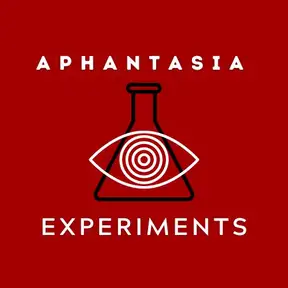
Aphantasia, Fascia, and the Autonomic Nervous System: Connecting the Dots
In this episode, Robin follows a series of intuitive connections between the body and the mind — exploring how fascia, heart rate, connective tissue, and the autonomic nervous system might influence aphantasia and the ability to visualize.
Drawing on her own lived experience with hypermobility, cervical ribs, elevated heart rate, meditation experiments, and her recent Holter monitor test, Robin examines how physiology may shape imagination more than we realize. She shares moments of colour and pattern arising during fascia work, the difficulty thinking while standing still, and why lying flat seems to improve mental clarity.
Topics include:
- Fascia work and its impact on inner perception
- How autonomic dysfunction affects cognition
- Living with chronic tachycardia
- What a Holter test reveals about day-to-day brain fog
- Why standing vs. walking changes how clearly she can think
- The surprise finding of cervical ribs and possible circulatory implications
- Whether pillows and sleeping posture influence brain perfusion
- Eye-pressure visuals and training the visual mind
- ADHD, autism, and how neurodivergence overlaps with autonomic regulation
- Trauma vs. congenital pathways to aphantasia
- How blood flow might be a missing piece in the visualization puzzle
Robin also introduces The Voice Note Project, a new community-driven podcast where listeners share their thoughts and experiences around big questions — consciousness, death, intuition, dreams, and the strange, meaningful moments we rarely talk about openly.
This episode is an invitation to explore how the body and mind communicate, how consciousness might be more physical than we think, and why understanding our physiology may open new doors for people with aphantasia.
🔬 Want a deeper scientific dive into this topic?
🔬 Want a deeper scientific dive into this topic?
If you’re curious about the research side of autonomics, interoception, and how the nervous system might influence aphantasia, I highly recommend this video by Aphantasia Network:
I watched it yesterday and I’m planning to watch it again — there’s so much in there.
If you want the science-heavy perspective or you’re looking to understand how researchers are approaching this from a physiological angle, this is a great place to start.
If you want the science-heavy perspective or you’re looking to understand how researchers are approaching this from a physiological angle, this is a great place to start.
